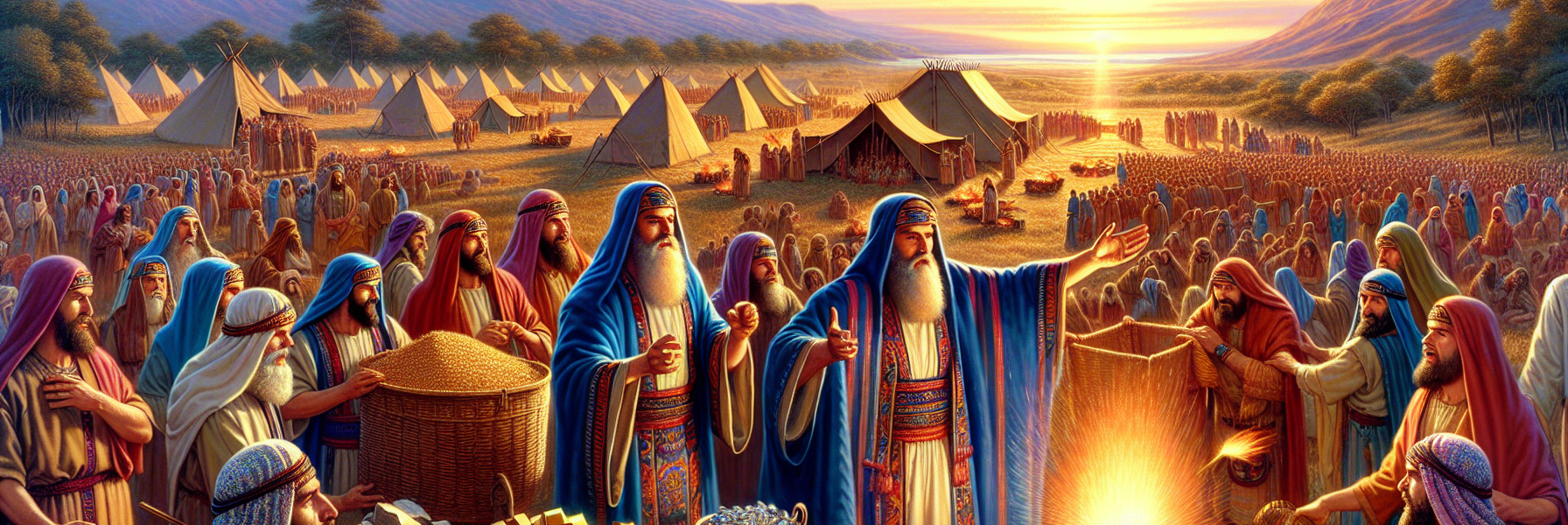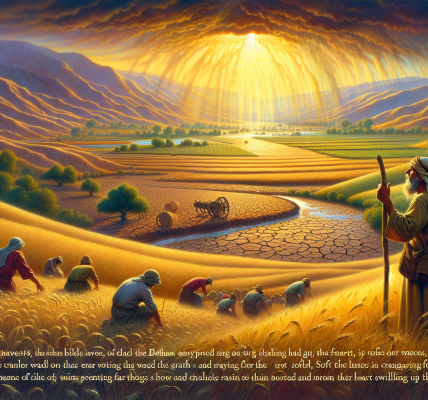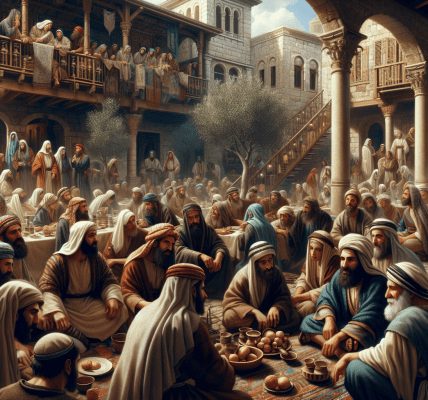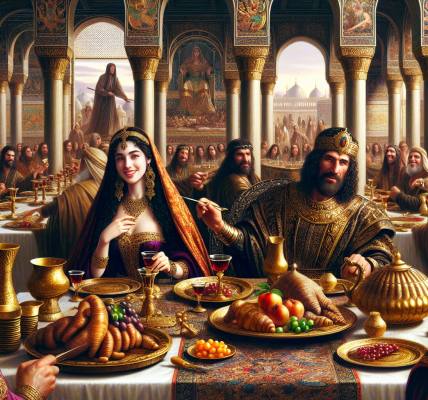**The Overflowing Gift: A Story of Willing Hearts and Skilled Hands**
The morning sun had barely stretched its golden fingers over the wilderness of Sinai when the camp of Israel stirred with an energy unlike any other. The air hummed with purpose, for the word had spread: the Lord had commanded the building of the Tabernacle, a dwelling place for His holy presence among His people. And now, the craftsmen—Bezalel and Oholiab—stood before the gathered multitude, their faces alight with divine inspiration.
The people had already brought offerings—gold, silver, and bronze; fine linen, blue, purple, and scarlet thread; acacia wood, oil, and precious stones. So abundant were their gifts that the workers had come to Moses with a startling report: *”The people bring much more than enough for the service of the work which the Lord commanded to make.”*
Moses, his weathered face softened with awe, raised his hands and proclaimed, *”Let no man or woman bring any more offerings for the sanctuary!”* And so, the word went forth, and the people ceased their giving, for the materials were more than sufficient.
### **The Craftsmen Begin Their Sacred Task**
Bezalel, his hands steady and his spirit filled with the wisdom of God, took up the gold first. The precious metal gleamed in the sunlight as he hammered and shaped it into the sacred furnishings—the Ark of the Covenant, overlaid with pure gold inside and out, its mercy seat crowned with two cherubim whose wings stretched upward in eternal reverence.
Nearby, Oholiab guided the weavers as their fingers flew across the loom, crafting the fine-twined linen, interwoven with threads of blue, purple, and scarlet. The curtains of the Tabernacle would be a sight to behold—ten in all, each adorned with cherubim skillfully embroidered by hands moved by the Spirit of God.
The craftsmen worked in harmony, their every stroke deliberate, their every measurement exact. The frames of acacia wood, overlaid with gold, rose like sentinels, forming the walls of the holy dwelling. Silver sockets held them firm, and bars of wood, also covered in gold, bound the structure together.
### **The Veil and the Screen**
One of the most sacred tasks was the weaving of the veil—the barrier that would separate the Holy Place from the Most Holy Place. The finest artisans worked upon it, their needles threading intricate designs of cherubim into the fabric. This veil would one day be torn, but for now, it stood as a solemn reminder: God was both near and holy, approachable yet to be revered.
The screen for the entrance of the Tabernacle was likewise fashioned with care, its colors vibrant, its weave strong. It would serve as a threshold between the ordinary and the sacred, a doorway where the priests would pass daily in their service.
### **The People’s Willing Hearts**
What made this work truly miraculous was not just the abundance of materials, but the abundance of *hearts*. The people had not given out of obligation, but out of joy. Their hands were not forced; their gifts were not reluctant. They had been slaves in Egypt, their spirits crushed under Pharaoh’s whip, but now—now they were free, and their freedom found its fullest expression in giving back to the God who had delivered them.
As the days passed, the Tabernacle took shape, piece by piece, each part a testament to divine wisdom and human faithfulness. The workers labored tirelessly, yet without exhaustion, for the Spirit of the Lord sustained them.
### **A Dwelling Fit for the Divine**
At last, the work was complete. The Tabernacle stood in the midst of the camp, a holy tent amid the tents of Israel. The gold gleamed, the fabrics shimmered, and the wood stood strong. It was not a palace of stone, but a movable sanctuary, a reminder that God journeyed with His people.
And as Moses inspected all that had been done, he saw that it was just as the Lord had commanded. Not a thread was out of place, not a measurement was amiss. The people had given *too much*—but in God’s economy, there is no such thing as excess when the heart is fully surrendered.
For in the wilderness, where water was scarce and bread fell from the sky, Israel had learned a greater lesson: when God’s people give willingly, He provides beyond what is needed. And when skilled hands are guided by His Spirit, even the most intricate work becomes an act of worship.
And so, the Tabernacle stood ready—a dwelling for the Almighty, built by the hands of those who loved Him. And the glory that would soon fill it would prove that the Lord delights not in the grandeur of the work, but in the willingness of the workers.




